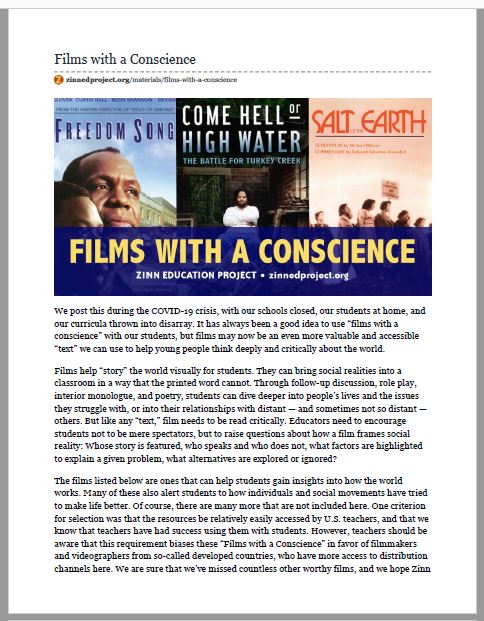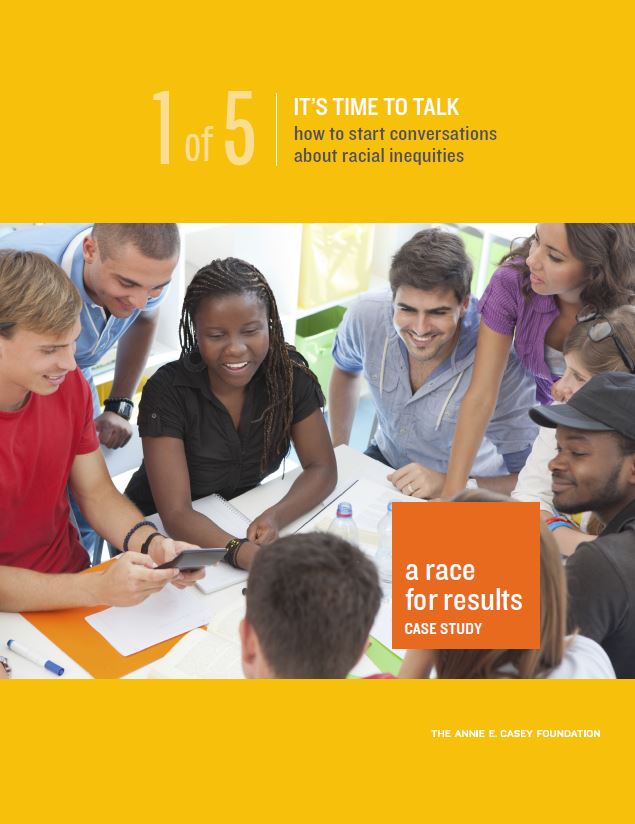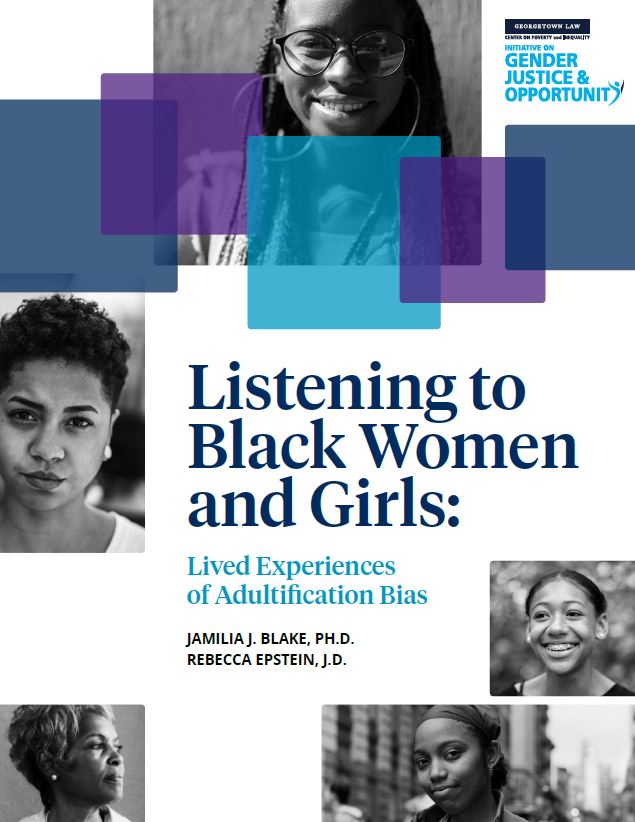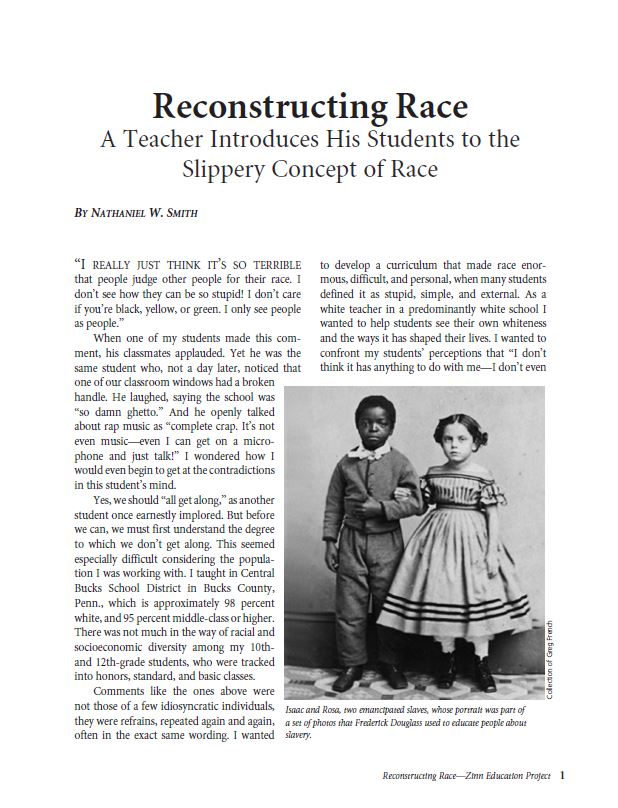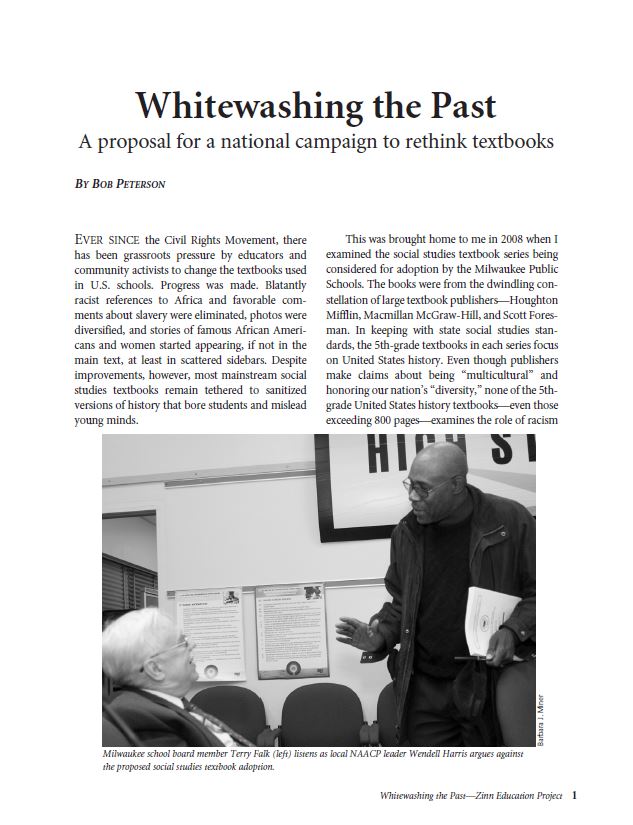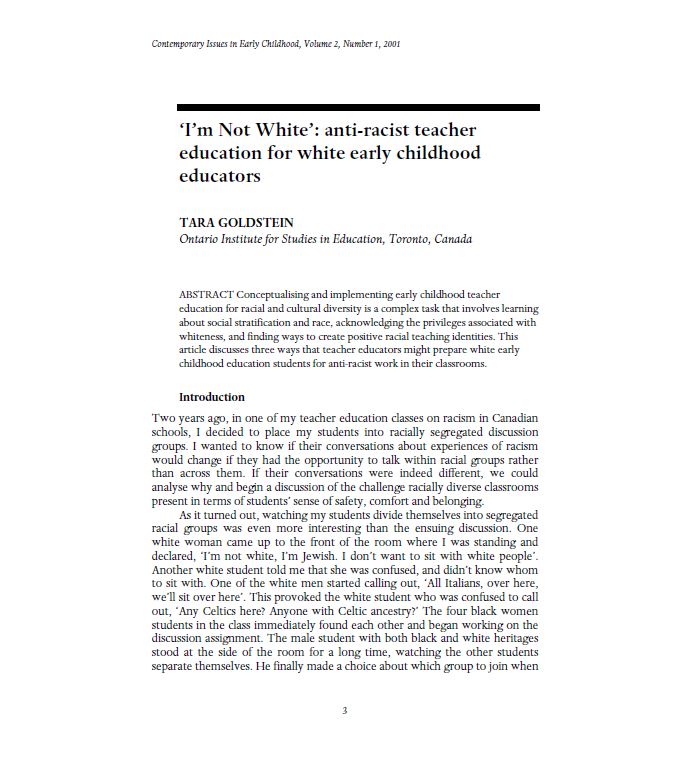Center Statement

Over the last nine years, we have partnered with hundreds of education agencies in work to address racism at the intersection of other oppressions. Many of you have read our publications, looked through our website, joined us in online learning communities and face-to-face for our Equity Leaders Institutes and Summits. You have applied our Equity Fellows policy and practice improvement tools, participated in Girls STEM Institute, shared our resources with your university students, and supported us as we worked to reignite the momentum of the journal Multiple Voices: Race, Disability, and Language Intersections in Special Education. At the same time, as your partners in the deep and constant struggle, we urge you to consider alongside your outrage over the systemic violence against our Black communities (and indeed, our BIPoC+ communities more broadly), that this very same systemic violence occurs in our schools. These are the traumas that must inform any claim of educators' “trauma informed care”: the traumas of suspension, expulsion, tracking, discouragement, silencing, restraining, secluding, segregating, and killing through systems of formal and informal surveillance and policing.
For those who are white (non-disabled, Christian, non-LGBTQIA+, English-only speaking, US born, and otherwise privileged) educators/scholars, we urge you to focus your work on dismantling the racism and ableism, and other oppressions you engage to maintain this systemic trauma for our Youth of Color and intersectionally-marginalized youth, alongside your community of white educators and scholars. Position yourselves as vulnerable and work toward the redistribution of your own power and resources, not the deficit-based fixing of children who are already brilliant and beautiful exactly as they show up in our schools, classrooms, and online spaces each and every day.
For our Black, Indigenous, People of Color+ partners, including families and students, we will continue work to center your experiences, your leadership, your wisdom, your voices, and all other forms of your expression. We will work to create more healing and loving spaces for you in particular as we move forward in the immediate and long-term future.
In solidarity,
Great Lakes Equity Center/Midwest and Plains Equity Assistance Center
Downloadable Resources
|
Zinn Education Project This guide for teachers utilizes meaningful films to teach children and youth about civil rights movements for historically marginalized groups, as well as other social justice issues.
|
It's Time to Talk: How to Start Conversations about Racial Inequities The Annie E. Casey Foundation This report outlines four recommendations to help legislators, public systems, nonprofit organizations, businesses and community leaders address the many barriers facing children of Color using Nebraska and Wisconsin case studies as examples.
|
Listening to Black Women and Girls: Lived Experiences of Adultification Bias Jamilia J. Blake & Rebecca Epstein Georgetown Law Center on Poverty & Inequality This report presents the findings from quantitative analysis of a form of gendered racial bias against Black girls--adultification, in which adults view Black girls as less innocent and more adult-like than their white peers—and a summary of findings from focus groups with Black women and girls across the U.S. |
|
Nathaniel W. Smith Zinn Education Project This article explores how a white teacher in a predominantly white school helped students to see their own whiteness, better understand racial issues, and the ways it shapes their lives.
|
Bob Peterson Zinn Education Project This article examines textbook curriculum and the colonial “whitewashing,” or White-centered erasure, of key history concepts, such as racism, classism, gender discrimination, and imperialism. The author urges a rethinking of traditional textbooks to be more representative, diverse, and inclusive of historically marginalized groups. |
I'm Not White: Anti-racist Teacher Education for White Early Childhood Educators Tara Goldstein This article discusses three ways that teacher educators might prepare white early childhood education students for anti-racist work in their classrooms. |
Resources
Anti-racist EducationBooks: How to Be an Antiracist by Ibram X. Kendi Me and White Supremacy by Layla F. Saad Sister Outsider by Audre Lorde The New Jim Crow: Mass Incarceration in the Age of Colorblindness by Michelle Alexander White Fragility by Robin DiAngelo Not Light But Fire
Articles: 16 Books About Race That Every White Person Should Read Who Gets to Be Afraid in America? 106 Things White People Can Do for Racial Justice Resources for White People to Learn and Talk About Race and Racism Mirrors of Privilege: Making Whiteness Visible White Anti-Racism: Living the Legacy Implicit Bias and Structural Racialization Multicultural Education vs Anti-Racist Education Talking to Very Young Children about Race The Characteristics of White Supremacy Culture Explaining White Privilege To A Broke White Person
Directories: Anti-Racism Resource Directory for Families: Resources for Multiple Grade Levels
Videos: Black Feminism & the Movement for Black Lives: Barbara Smith, Reina Gossett, Charlene Carruthers Dr. Robin DiAngelo discusses 'White Fragility' How Studying Privilege Systems Can Strengthen Compassion Moving from Cultural Competence to Antiracism
Podcasts: Intersectionality Matters! hosted by Kimberlé Crenshaw Momentum: A Race Forward Podcast
Films and TV series: 13th American Son Black Power Mixtape: 1967-1975 Blindspotting Clemency Dear White People Fruitvale Station I Am Not Your Negro If Beale Street Could Talk Just Mercy King in The Wilderness See You Yesterday Selma The Black Panthers: Vanguard of the Revolution The Hate U Give When They See Us Putting Racism on the Table: Robin DiAngelo on White Privilege
Websites Junebaby Anti-Racist Encyclopedia Self-Defined: Social Justice Dictionary
Toolkits
Blogs A Guide to Activism in the Digital Age
Anti-Asian RacismCenter Statement on the Violence in Atlanta on 3/16
This morning, we woke up to the sad and angering news of yet another act of racial violence with the mass shooting in Atlanta overnight. Our hearts go out to the families and friends of the eight women who were killed, and to the Asian, Asian-American, and Pacific Islander communities in the U.S. Anti-Asian violence has increased in most major cities with the majority of the victims being Asian women. Centers that study hate crimes have indicated a correlation between the violence and the use of racist rhetoric associated with COVID-19 over the past year. Educators committed to anti-racist education can engage in specific actions to combat racism and specifically anti-Asian racism, including bigotry against Asian immigrants and transnational citizens in their schools and local settings by addressing school culture and climate, confronting bullying and harassment, pushing back on the “Model Minority” myth, and engaging in culturally sustaining instructional practices. Lastly, please recognize how this latest mass shooting may affect your Asian students, and also be triggering for your Black, Latinx, and Jewish students, whose communities have also been targets of increased racial violence over the past several years. We hope that the resources below help you to understand more about anti-Asian racism, its impact, and tools for systemic change.
Websites Resources for Addressing Anti-Asian Racism in the Time of Coronavirus
Documents The Asian American Racial Justice Toolkit
Organizations Asian Pacific Policy and Planning Council (A3PCON) is a coalition of API-led community organizations and individuals s that advocates for the rights and needs of the Asian and Pacific Islander American (APIA) Community in the greater Los Angeles area, with a particular focus on low income, immigrant, refugee and other disadvantaged sectors of the population.
Chinese for Affirmative Action (CAA) Chinese for Affirmative Action (CAA) is a progressive voice in and on behalf of the broader Asian American and Pacific Islander community. We advocate for systemic change that protects immigrant rights, promotes language diversity, and remedies racial and social injustice.
Asian American Studies Department, San Francisco State University Asian American Studies Department, San Francisco State University furthers the understanding of the histories and cultures of Asian Americans and the various identities and experiences of our communities. Through teaching, community service, and research, the AAS department uses interdisciplinary approaches to address the structural and ideological forces that shape the lives of Asian Americans.
Books At 40 The Coming Man War Baby/Love Child |
Filipinos in San Francisco Songs of Gold Mountain Faithful Generations Sustaining Faith Traditions in America History of Okinawans in North America Imin no Aiwa The Age of Asian Migration: Continuity, Diversity, and Susceptibility Asian American Identities and Practices: Folkloric Expressions in Everyday Life Auburn’s Joss House Cambodian American Experiences Contemporary Issues in Southeast Asian American Studies History of Asian Americans: Exploring Diverse Roots Laotians in the San Francisco Bay Area Encyclopedia of Asian American Issues Today Koreans in America
Repositories Asian American and Pacific Islander Resource Library Dove Kent Anti-Racist Repository
Self-Care for People of ColorArticles/Blogs: Strategies for Practicing Self-Care from Racial Battle Fatigue Self-Care Tips for Black People Who Are Struggling Breaking Isolation: Self-care and Community Care Tools for Our People Radical Self-Care: 25 Tips for Black People POC Online Classroom: Self-Care (Readings & Resources) Black Lives Matter. Black Mental Health Matters Too
Talking to Kids About RacismBooks: Coretta Scott King Book Award Winners: Books for Children and Young Adults 31 Children's Books to Support Conversations on Race, Racism, and Resistance
Podcasts: Parenting Forward podcast episode ‘Five Pandemic Parenting Lessons with Cindy Wang Brandt’ Fare of the Free Child podcast Integrated Schools podcast episode “Raising White Kids with Jennifer Harvey”
Articles: How White Parents Can Talk To Their Kids About Race | NPR Teaching Your Child About Black History Month | PBS Your Kids Aren't Too Young to Talk About Race: Resource Roundup from Pretty Good 7 Key Steps to Raising Inclusive Kids How Black Art Can Spark Conversations with Children Talking about Racism and Bias: Resources for Parents and Caregivers Teaching Your Child About Black History
Videos: How to Raise Kids to be Anti-racist and Talk to Them about Racism
For EducatorsArticles: What Anti-racist Teachers Do Differently Why do Educators Need Anti-Racist Training? Creating an Anti-Racist Classroom: Reflections to Level the Playing Field Teacher Bias: The Elephant in the Classroom Teachers are People Too: Racial Bias Among American Educators Anti-Racism Resources for Families and Educators A Call to Action for White Educators Who Seek to Be Anti-Racist How to Create Anti-racist Virtual Classrooms: Strategies for Teachers and Families
Resource Repositories: Open Up: Resources to Support Equity and Anti-racism in Schools
Anti-racist CurriculumRepositories: Social Justice Summer Curriculum for Children of Color Political Education, Toolkits, & Other Resources
Books: Antiracist Baby by Ibram X. Kendi This Book is Antiracist by Tiffany Jewell Crossover Series by Kwame Alexander Dear Martin by Nic Stone All American Boys by Jason Reynolds and Brendan Kiely I am Alfonso Jones by Tony Medina A Good Kind of Trouble by Lisa Moore Ramée Ghost Boys by Jewell Parker Rhodes New Kid by Jerry Craft
Videos: |

